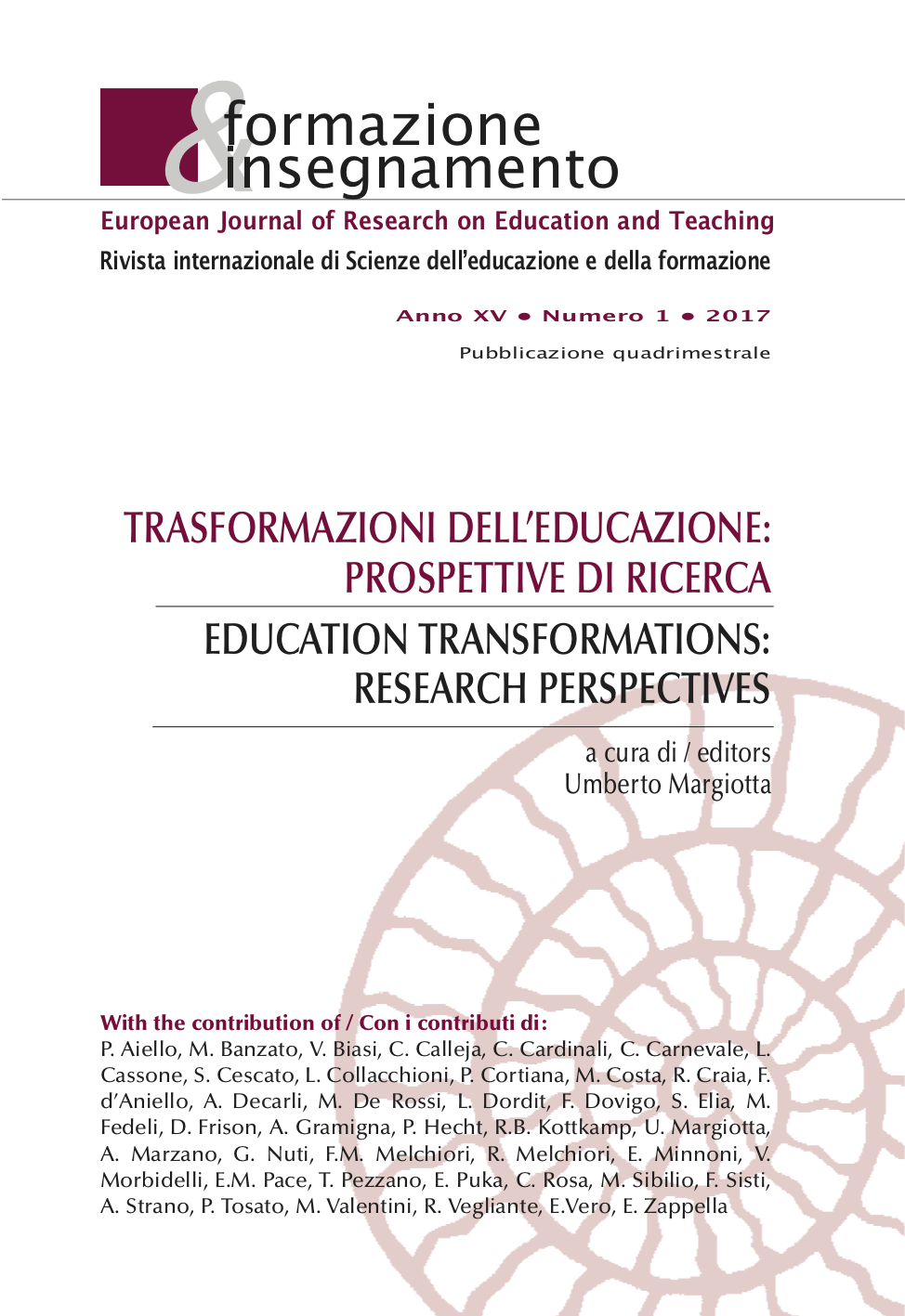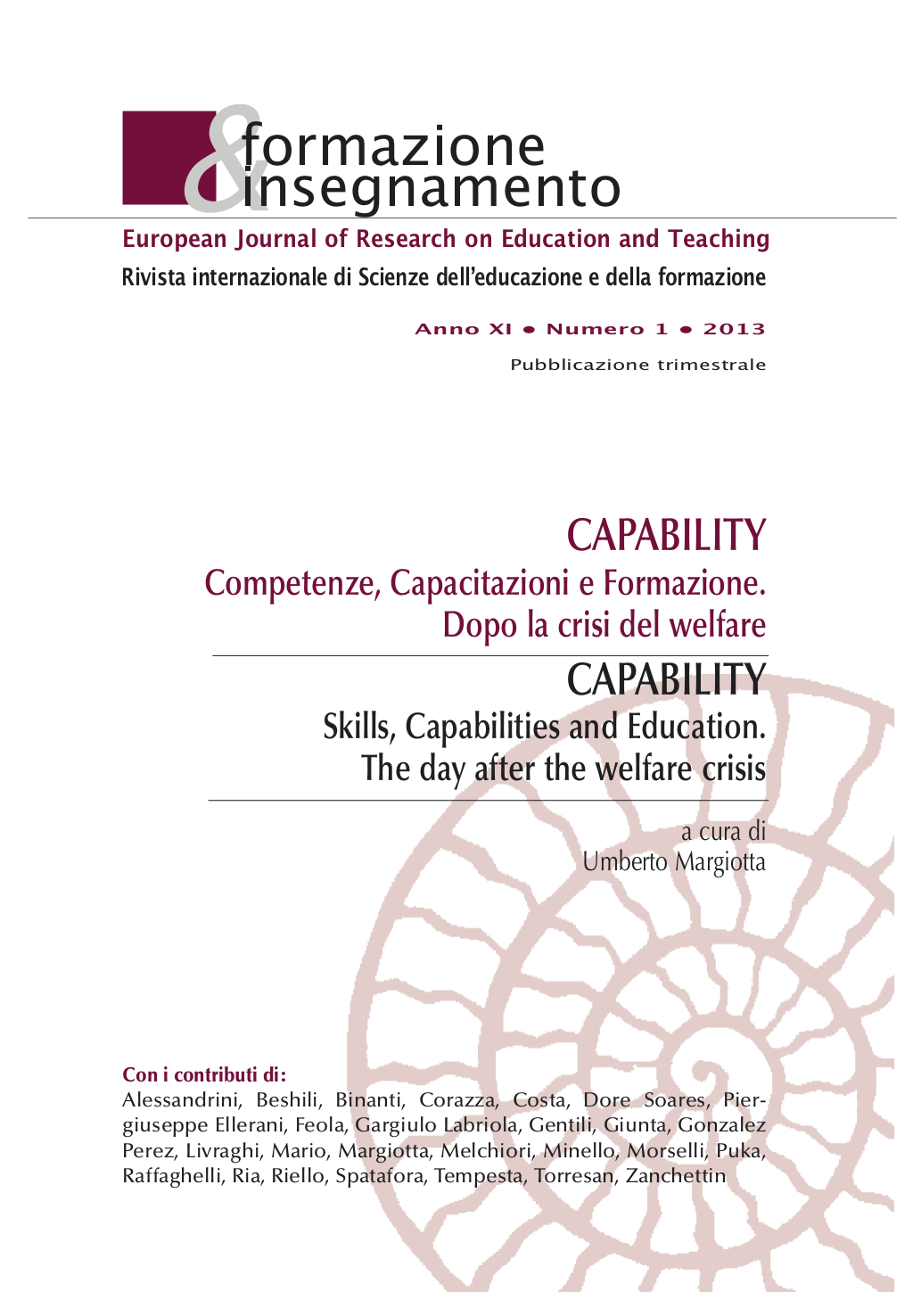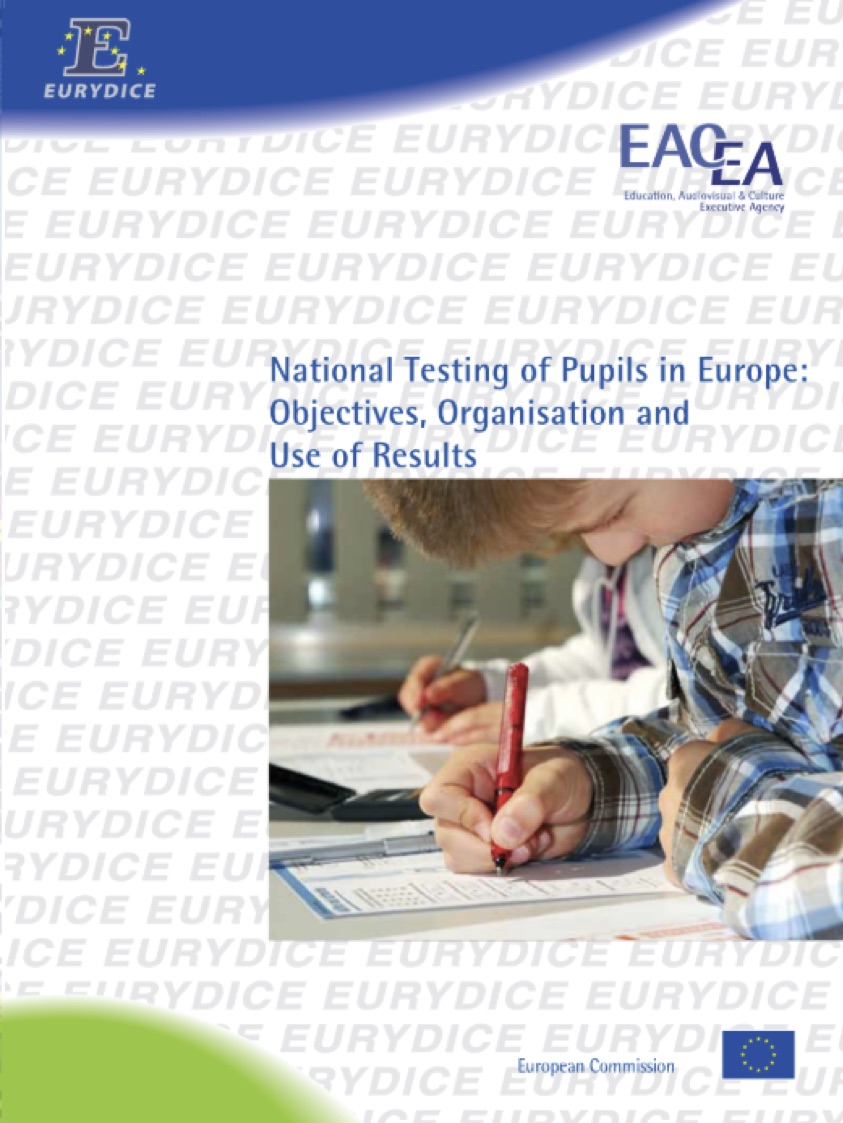® INVALSI – Via Ippolito Nievo, 35 – 00153 ROMA – tel. 06 941851 – fax 06 94185215 – c.f. 92000450582 | Cookies – Privacy Policy – Photo Credits

Autore: Eskja Vero & Edi Puka (2017)
Rivista: Formazione & Insegnamento XV – 1 – 2017
Editore: Pensa MultiMedia s.r.l., Lecce
Codice ISSN: 19734778 (print) – 22797505 (online)
DOI: 107346/-fei-XV-01-17_05
In questo articolo andremo a discutere di come il concetto di motivazione in materia di
istruzione influenzi il processo di apprendimento degli studenti. La mancanza di motivazione in materia di istruzione è in grado di minare il processo del loro apprendimento. Gli studenti sono motivati a accumulare conoscenza, senza incentivi interni (psicologici, emotivi) o esterni (sociali – educativi)? Come costruire una combinazione di fattori motivazionali interni ed esterni, tra docente e studente, per le funzioni di apprendimento in ambito accademico? Tutti gli studenti, compresi gli insegnanti, sono motivati in modi e forme diverse. Per questo motivo, l’ambiente educativo è sempre molto dinamico, poiché ciascuno dei due componenti svolge determinati ruoli. Sotto l’aspetto motivazionale, il ruolo degli insegnanti nel processo educativo consiste nella creazione di un clima e di un atteggiamento positivo che incoraggia l’apprendimento e il successo a lungo termine. Mentre il ruolo degli studenti consiste nella trasformazione qualitativa della conoscenza e nell’essere attivi per aumentare la qualità degli studi accademici. Aumentare la forza collaborativa e comunicativa tra allievo e formatore rappresenta due fattori fondamentali di motivazione per l’apprendimento. Lo studio si baserà su un quadro di familiarità con alcune delle definizioni principali del termine “motivazione all’apprendimento” e con alcune teorie socio-educative e psicologiche, la teoria di Maslow, Herzbergs, McClelland, etc., per cogliere il punto di vista di alcune delle prospettive e competenze educativo-cognitive che realizzano la motivazione degli studenti in ambito accademico.

Autore: Roberto Trinchero (2014)
Rivista: Form@re, Open Journal per la formazione in rete – Numero 4, Volume 14, pp. 34-49.
Codice ISSN: 18257321 DOI: 10.13128/formare-15794
Qual è la funzione del Servizio Nazionale di Valutazione formativa degli istituti scolastici? A cosa servono davvero le prove Invalsi? Le critiche che spesso vengono mosse a queste prove sono veramente fondate? Come può la valutazione dell’offerta formativa scolastica costituire davvero un agente di miglioramento? Il presente articolo intende fornire alcune risposte a queste domande, partendo dalle istanze che hanno ispirato l’autonomia scolastica e offrendo spunti per un utilizzo non fazioso della valutazione. La valutazione può essere davvero agente di cambiamento a patto che: i) sia attribuito ai dati il corretto significato; ii) la scuola sia in grado di comprendere i potenziali suggerimenti che la valutazione può dare e si apra al cambiamento positivo. La valutazione applicata ad una “scuola che si difende” non può che provocare inutili esiti di facciata. La valutazione applicata ad una “scuola che apprende” può davvero aiutarla ad esplicare appieno tutte le proprie potenzialità.

Autore: Giorgio Riello (2013)
Rivista: Formazione & Insegnamento XI – 1 – 2013
Editore: Pensa MultiMedia s.r.l., Parma
Codice ISSN: 19734778 (print) – 22797505 (online)
DOI: 10746/-fei-XI-01-13_22
Nell’ambito dell’attuale dibattito europeo sulle politiche in materia di occupazione ricopre un ruolo predominante il concetto di flexicurity, quale forma di equilibrio tra il bisogno di flessibilità dei datori di lavoro e il bisogno di sicurezza dei lavoratori. La certificazione delle competenze si iscrive tra le politiche attive che favorisco processi di flexicurity. Tuttavia le politiche attive non devono essere intese solo come semplice protezione sociale di tipo compensatorio per una forza lavoro flessibile, bensì orientati a sostenere anche l’empowerment del soggetto e le sue capacità.

Autore: Eurydice (2011)
Editore: Eurydice, Brussels
Codice ISBN: 9789292010362 DOI: http://dx.doi.org/10.2797/18294
This study produced by the Eurydice network gives a detailed picture of the context and organisation of national tests in 30 European countries and the use made of test results in informing education policy and practice and in guiding the school career of pupils. It presents the diverse choices made by European countries regarding the objectives, frequency and scope of national tests and points to important Europe-wide patterns and trends. It also emphasises the need to develop coherent systems of pupil assessment that combine the respective strengths of nation-wide tests and other forms of assessment and aim not only to grade pupils but to help them improve. The efforts of European countries to increase the effectiveness and efficiency of their education systems have led to a growing emphasis on the measuring and monitoring of performance. In the majority of European countries regular national testing has been established relatively recently and it has been expanding rapidly in the current decade. In the school year 2008/09 only the German-speaking community of Belgium, the Czech Republic, Greece, Wales and Liechtenstein do not administer national tests in compulsory education. Several other countries have not yet completed the full implementation of their national test systems. The significance of national tests continues to evolve and in the United Kingdom (England, Wales and Northern Ireland) they are now being assigned a less important role in the overall system of assessment. The study covers compulsory education and the data refers to school year 2008/09. Annexes contain national tables with information on selected parameters of national tests. A glossary is included. Individual sections contain footnotes.

The product of an extensive survey requested by the civil rights act of 1964, this report documents the availability of equal educational opportunities in the public schools for minority group negroes, puerto ricans, mexican-americans, oriental-americans, and american indians, as compared with opportunities for majority group whites. comparative estimates are made on a regional as well as on a national basis. Specifically, the report details the degree of segregation of minority group pupils and teachers in the schools and the relationship between students’ achievement, as measured by achievement tests, and the kinds of schools they attend. Educational quality is assessed in terms of curriculums offered, school facilities such as textbooks, laboratories, and libraries, such academic practices as testing for aptitude and achievement, and the personal, social, and academic characteristics of the teachers and the student bodies in the schools. Also in the report is a discussion of future teachers of minority group children, case studies of school integration, and sections on higher education of minorities and school nonenrollment rates. Information relevant to the survey’s research procedures is appended. Notable among the findings on the survey are that negro students and teachers are largely and unequally segregated from their white counterparts, and that the average minority pupil achieves less and is more affected by the quality of his school than the average white pupil.
® INVALSI – Via Ippolito Nievo, 35 – 00153 ROMA – tel. 06 941851 – fax 06 94185215 – c.f. 92000450582 | Cookies – Privacy Policy – Photo Credits